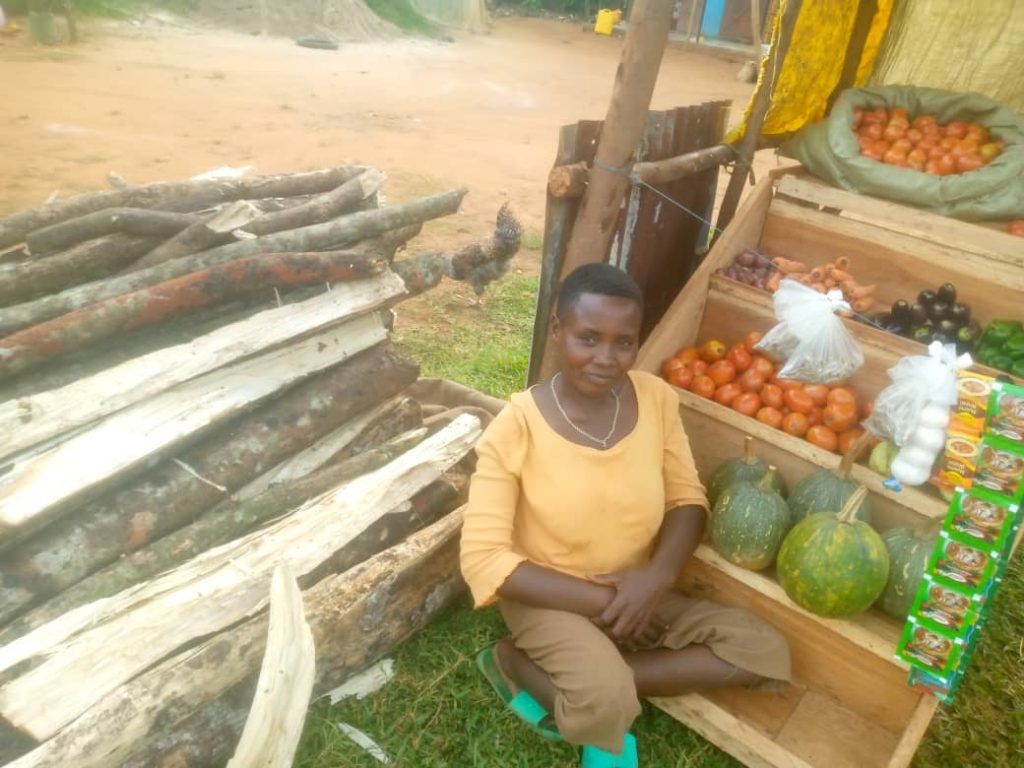SRHR access for youth with disability: the Ugandan youth who is defying all odds to reclaim her power
 10 June 2025
10 June 2025

What becomes of a child born into layers of vulnerability—poverty, disability, and limited access to healthcare? For Sarah Nahurira, a polio survivor from rural Uganda, this reality was deeply personal. Paralyzed at age four and raised in a society that sidelined her, Sarah's story is one of resilience, transformation, and empowerment.
What happens to a child whose life is a series of multiple vulnerabilities? Born in 1994, on the cusp of a fresh polio outbreak in Uganda, Sarah Nahurira was just another child with hopes of a fairly uncomplicated future. Her family in rural Uganda had neither the adequate information on vaccination, nor the access to a healthcare facility. As a result, Sarah was not immunized against polio.
Four years later in 97’, the disease would hit closer to home, claiming her spine and limbs. She recounts: “I woke up one morning and my entire body was contorted. I was paralyzed from the waist down and my legs and arms had lost muscle function.”
Now at 28, the mother of three wheel-chair user raves about the knowledge she has acquired through attending the Make Way’s SRHR workshops in her village, crediting the programme for the control she now has over her sexual reproductive health.
“I keep note of the dates to make sure to refill my family planning [implantable contraceptive] every three years at the clinic. It is easier now with the wheelchair I received from Make Way partners. I don’t intend to have any more children, and my sexual partners know that too. Before I start a relationship, I give them two options: either we both go for HIV testing and rule that out, or we buy and use condoms.”
But this wasn’t always Sarah’s story.
Growing up with a physical disability in a low-income household, she had no wheelchair, and was bound to her bed – only being carried out into the homestead by her mother. Sarah’s isolation was exacerbated by the stigma she faced in the community, even from her own family members. She recalls the difficult times: “My own father left and stopped caring for me, my elder [half] brother who is now financially well taunts me to this day; he has never done anything to protect me or provide for me.”
“I am also a person like any other with desires that anyone at that age would have.”
In Senior One (equivalent of the first year in high school), Sarah got pregnant. “For 5 months I kept it to myself, afraid to tell my mother who had made it clear that she would not tolerate pregnancy from me.” While Sarah’s mother had repeatedly warned her about boys and sex, she had not been provided any sexual and reproductive health information on how to safely navigate what would become inevitable.
A core objective of the Make Way programme is to highlight individuals’ overlapping vulnerabilities through the application of an intersectional lens. This approach helps stakeholders understand and therefore address the extent of these vulnerabilities and their effects on the SRHR of youth like Sarah.
In the same community where Sarah lives, Nakachwa Catherine works as Programs Officer for Youth and Children at the Umbrella Cerebral Palsy Network Association (UCPNA), one of Make Way’s implementing partners. Nakachwa reveals that many young girls with disabilities were previously missing school during their menstrual periods due to a lack of affordable sanitary products, inaccessible school washrooms, and limited knowledge on menstrual hygiene.
In response, and with Make Way’s support, implementing partners conducted a Menstrual Hygiene and Management (MHM) 6-month pilot project in which they trained over 40 young women and girls, and their caregivers on menstrual hygiene management. The partners also provided them with simplified period trackers and introduced practical, low-cost hygiene solutions like reusable pads.
“This project did more than just address a personal and often overlooked health need. It tackled deeply rooted social stigma, myths, and misconceptions surrounding both menstruation and disability within the community.”
UNCPA has also supported Sarah with capital and equipped her with entrepreneurial skills which have birthed a grocery stall in her village. Here, she sells foodstuffs from which she earns some money to fend for her children, as well as meet her basic needs, including her infants’ vaccinations and the 3-year birth control plan.
Once shy and reclusive, sometimes afraid or unable to visit a healthcare center for fear of stigma, Sarah is now the leader in her community encouraging other people with disabilities to seek sexual and reproductive healthcare. She has taken up the role of young women’s chairperson, and even leads Make Way’s safe space dialogues on SRHR to share knowledge with other youth. Her message to policy makers? “Sensitize all communities across the country in order to end stigma against people with disabilities.”



